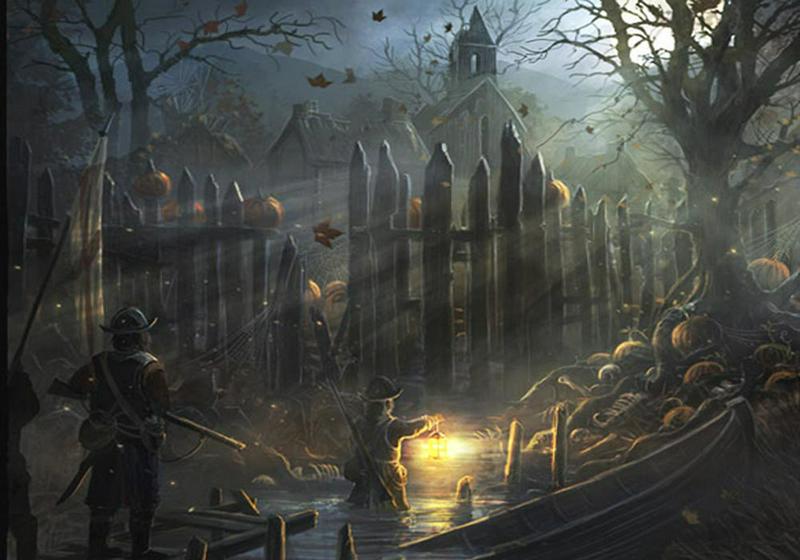Unraveling the Mystery Of The Lost Roanoke Colony
By | October 5, 2019

One of America’s oldest and most renowned unsolved mysteries centers around the disappearance of the Roanoke Colony in 1590. Throughout the years, the mystery has served as a plot device in various television shows, movies, and books, many of which capitalize on the strangeness of the word “Croatoan” found carved on a post. But for historians, the disappearance of the Roanoke colonists is more ambiguous than mysterious.
It began in August of 1587 when 115 English settlers arrived at Roanoke Island, just off the coast of present-day North Carolina. This was the third group of Englishmen to travel to the island. The first group came in an exploratory capacity in 1584, merely to map the area for future settlers. The second group arrived the following year but were driven out by local tribes. The third group came in 1587 hoping to succeed where the 1585 group had failed and many of the male explorers brought along their wives and children while others expected their families to join them later.

The colony, led by John White, got off to a rocky start. White had orders to land further north at the Chesapeake Bay, but the captain refused to take them further than the coast of Roanoke. At the same time, an accident during landing cost them valuable food supplies. When they arrived at the site of the former colony, it was to find it completely in ruins and surrounded by unwelcoming natives. As a result, it became necessary for White to return to England for supplies before the end of the year. However, when he left, he had reason to believe the colony was making progress with the natives.

Due to a number of unforeseen circumstances, primarily the outbreak of a naval war with Spain, it was three years before White made it back to Roanoke Island. He finally arrived on August 18, 1590, only to find that all the colonists, including his daughter Eleanor Dare as well as his granddaughter Virginia, who had just been born before he left, had abandoned the settlement. In place of the houses, he found a new fort which had also been abandoned. The only evidence was fresh footprints on the beach, likely from natives who were hiding from White and his men, and the letters “CRO” carved into a tree. White would later remember seeing the full word “Croatoan” on a gate post near the fort. He took this to mean the colonists had taken refuge with the Croatoan tribe on Hatteras Island; however, bad weather prohibited him from searching there.

While White’s assumption remains the most likely scenario, he was never able to make it to Hatteras Island to be reunited with his family, if they did indeed survive to make it there. Without definitive proof, alternative theories arose. Many speculate that they were driven out and then slaughtered by hostile natives, but the deserted colony showed no evidence of having been abandoned in a rush. Instead, the buildings had been carefully dismantled and everything useful had been taken. Other theories include starvation and disease, but there were no human remains found. More realistic is the idea that they broke up into smaller groups and attempted to survive on their own before either dying off or assimilating into native tribes.

More fantastical theories like alien abduction and zombie viruses probably led to the rumors that the word “Croatoan” has been associated with other mysterious deaths and disappearances, such as the death of Edgar Allan Poe and the disappearance of Amelie Earhart. However, recent research has focused on the two most likely answers. DNA tests have been conducted in an attempt to determine whether the descendants of the Croatoan tribe could be related to the Roanoke colonists, but the results have been inconclusive. Another theory is that all or part of the group sailed to another location approximately fifty miles from Roanoke. This site, referred to as Site X, is located at the west end of the Albemarle Sound. While initial investigations showed no evidence of the colony there, more recent technology has uncovered artifacts that could possibly have belonged to the Roanoke colonists.

